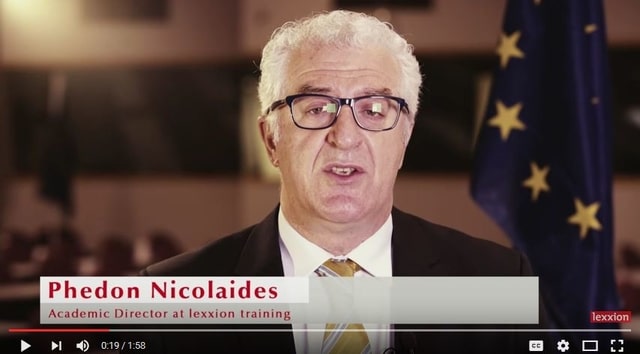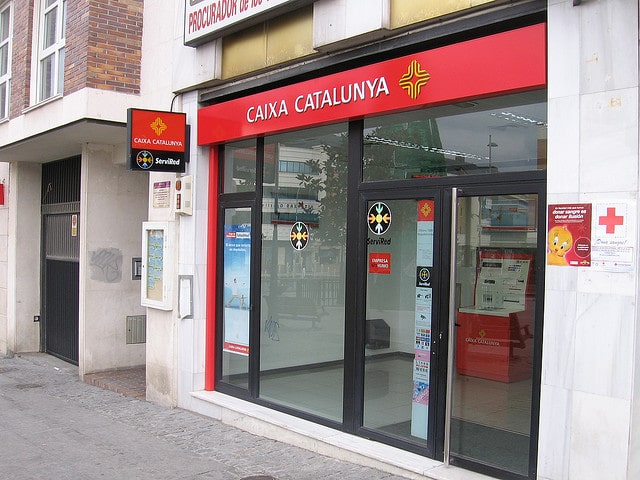The risk of relocation outside the EU is not accepted as a justification for the granting of State aid. Introduction The European Commission has had to assess many measures of State aid to producers of electricity from renewable energy sources [RES producers or “green” electricity producers] and to intensive users of electricity [EIUs]. The former have benefitted from investment […]
State Aid Law
Blog
State Aid Uncovered Blog
In Lexxion’s State Aid Uncovered blog, Prof. Phedon Nicolaides publishes weekly critical analyses of recent State aid judgments and decisions. Each post presents the key points of a court judgment or EU Commission decision, places it in the context of similar case law or practice, assesses the underlying reasoning and highlights any inconsistencies or contradictions.
Guest contributions from other State aid experts will also be published on the blog at irregular intervals to complement the content of the blog posts.
14. July 2016 |
State Aid Uncovered
by Lexxion Publisher
What is State aid? Why do I need to be concerned about State aid? These and many more basic questions will be answered in our videos on YouTube. Make sure to visit us! Last week Phedon Nicolaides gave „Practical Examples of State aid“, today he addresses the question „What type of aid is allowed?“. This aid is called „good aid“. […]
12. July 2016 |
State Aid Uncovered
by Phedon Nicolaides
There has been an impressive increase in the use of the General Block Exemption Regulation. However, Member States still notify measures which are acknowledged by the Commission with “comfort letters”. Introduction[1] In May 2012, the European Commission launched its State Aid Modernisation [SAM] initiative. After two years of consultations with the Member States, a set of new State aid […]
7. July 2016 |
State Aid Uncovered
by Lexxion Publisher
What is State aid? Why do I need to be concerned about State aid? These and many more basic questions will be answered in our videos on YouTube. Make sure to visit us! After answering the question “Who can grant State aid?” last week, Phedon Nicolaides today gives you some practical examples of State aid such as subsidies by public authorities, […]
5. July 2016 |
State Aid Uncovered
by Phedon Nicolaides
After the spontaneous words on Brexit and State aid last week, I continue with the 2nd part of the post on infrastructure and SGEI today. A provider of services of general economic interest may receive both investment aid and compensation for the extra costs of public service obligations. Part II: SGEI[1] Member States are free to determine the services […]
1. July 2016 |
Guest State Aid Blog
by Lexxion Publisher
Find below the court’s diary for all State aid cases this month. Would you like to write a comment on one of them? Please don’t hesitate and get in touch with us ([email protected]), we are happy to publish your comment on the blog. Thursday 14/07/2016 Judgment in Case T-143/12 – Germany v Commission (General Court – Eigth Chamber) Tuesday 19/07/2016 […]
30. June 2016 |
State Aid Uncovered
by Lexxion Publisher
What is State aid? Why do I need to be concerned about State aid? These and many more basic questions will be answered in our videos on YouTube. Make sure to visit us! After answering the question “What is State aid?” in his last video, Phedon Nicolaides today speaks about “Who can grant State aid?”. Watch the video, comment and subscribe to […]
27. June 2016 |
State Aid Uncovered
by Phedon Nicolaides
The second part of the Lithuanian measure on the LNG terminal was scheduled to be published this week. In view of the referendum in favour of exit of the UK from the EU, the second part of the Lithuanian measure will be published next week. Instead, this week the focus is on the impact of Brexit on State aid. Introduction […]
23. June 2016 |
State Aid Uncovered
by Lexxion Publisher
What is State aid? Why do I need to be concerned about State aid? These and many more basic questions will be answered in our videos on YouTube. Make sure to visit us! Today Phedon Nicolaides answers the question “What is State aid?”, explaining the four criteria by case law & treaty. View now, comment and subscribe to our […]
21. June 2016 |
State Aid Uncovered
by Phedon Nicolaides
A provider of services of general economic interest may receive both investment aid and compensation for the extra costs of public service obligations. Introduction Governments normally support large infrastructural projects through guarantees. This is because such projects have a long life, the initial investment costs are very high and the recoupment of investment takes place over a long period […]
4. August 2015 |
State Aid Uncovered
by Phedon Nicolaides
Individual awards of de minimis aid must remain below the relevant threshold as well as the sum of all individual awards in any three-year period. Aid measures which are funded by beneficiaries themselves are unlikely to constitute State aid. Introduction This article reviews two cases that, among other things, deal with the use and abuse of de minimis aid […]
28. July 2015 |
State Aid Uncovered
by Phedon Nicolaides
A public authority can act as a private investor in paying to avoid costly contractual clauses. A public authority can act as a private investor in paying to bring forward future revenue. Introduction When a market operator invests to make profit, its underlying logic is the same as when it pays to avoid losses. In both cases it is […]
21. July 2015 |
State Aid Uncovered
by Phedon Nicolaides
The Market Economy Investor Principle also applies to transactions between related companies. A private investor enjoys a margin of discretion in deciding in favour or against an investment. However, despite that margin of discretion, a prudent private investor always carries out an assessment of the potential profitability of the investment before it commits any money. Introduction When a public […]
14. July 2015 |
State Aid Uncovered
by Phedon Nicolaides
De minimis aid underpins “off-the-shelf” financial instruments which leverage private investment and at the same time ensure that all aid is passed on to the final beneficiary. Introduction One of the most convenient aid instruments is de minimis aid. It can be used for any purpose [apart from promotion of exports or on condition that domestic products are favoured] […]
7. July 2015 |
State Aid Uncovered
by Phedon Nicolaides
The sale of a public undertaking [privatisation] needs to be preceded by independent valuation and be carried out on the basis of a competitive procedure. Certain guarantees may be provided to prospective buyers, if they could increase the sale price. The break-up of an undertaking and the disposal of the different parts through separate sales should be shown to generate […]
29. June 2015 |
State Aid Uncovered
by Phedon Nicolaides
The standard of proof of whether a measure is selective depends on whether that measure is a scheme or a grant of individual aid. Measures providing for exemption are by definition selective. Measures that impose additional charges for the purpose of maintaining equality between operators are not necessarily selective even if the responsible authorities retain a degree of discretion in […]
22. June 2015 |
State Aid Uncovered
by Phedon Nicolaides
Ex post monitoring will be pursued vigorously by the Commission. Irregularities in the implementation of State aid measures may lead to the opening of the formal investigation procedure. Introduction This article examines Commission decision concerning a UK risk capital scheme entitled Enterprise Capital Funds [SA.15373 and SA.33186]. The decision is the outcome of an investigation that was initiated after […]
15. June 2015 |
State Aid Uncovered
by Phedon Nicolaides
At the end of April, the European Commission announced that seven measures were found not to constitute State aid because they could not be reasonably expected to affect cross-border trade. The finding of no affectation of trade is rare. That seven measures were thought not capable of affecting trade is very exceptional. Perhaps the Commission is trying to signal to […]
8. June 2015 |
State Aid Uncovered
by Phedon Nicolaides
Greater use of the new General Block Exemption Regulation means fewer State aid measures subject to notification and ex ante assessment by the Commission. However, less ex ante control will be followed by more ex post control. Member States should be prepared for wider and more intrusive ex post monitoring. Introduction One of the cornerstones of the State Aid […]
1. June 2015 |
State Aid Uncovered
by Phedon Nicolaides
Injection of public capital in an undertaking conforms with the market economy investor principle when: The public investment is equal and concomitant to private investment. The public investment has economic significance and is not followed by disengagement of private investors. The recipient undertaking is in a healthy financial position. The recipient undertaking compares favourably to its peers. The investment is […]




















